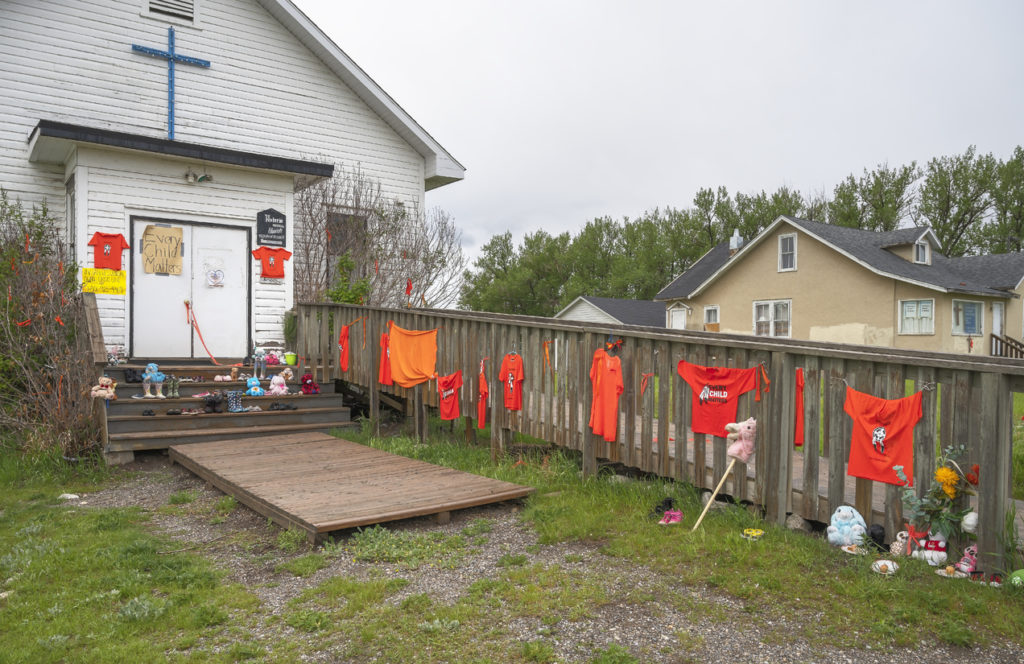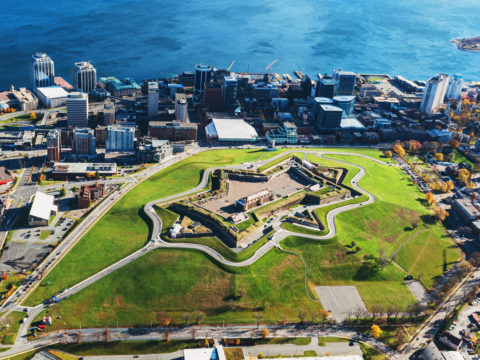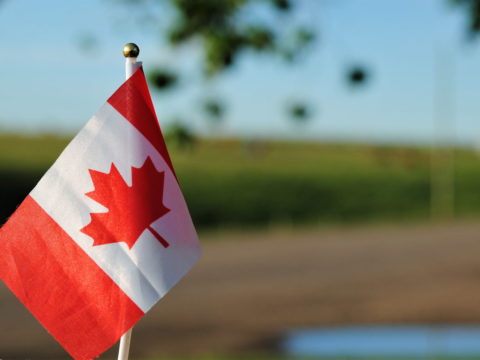
Amidst the recent discovery of hundreds of unmarked graves at former residential schools, many cities across Canada are choosing to forgo Canada Day celebrations. Residential schools are a long and dark chapter of Canada’s past; while the forced assimilation schools no longer operate, the effects on Indigenous communities are lasting. Prime Minister Justin Trudeau has commented that this Canada Day, “Canadians will be reflecting on reconciliation, on our relationship with Indigenous Peoples and how it has evolved and how it needs to continue to evolve rapidly”.
What were residential schools and what are the ongoing effects?
Residential schools operated in Canada from 1870 up until the 1990s. Though called residential “schools”, they were more akin to prisons than institutes of learning. Created by Christian churches and the Canadian government, these institutions aimed to assimilate Indigenous youth into Euro-Canadian culture. Residential schools caused significant harm to the children and families involved. In addition to being forcibly removed from their parents, many Indigenous children experienced many forms of abuse. These children were given new English names and attire and were required to practice Christianity. Residential schools did not provide children with enough food to eat or with weather appropriate clothing. Due to overcrowding of these schools, disease spread quickly. The head of the Truth and Reconciliation Committee has estimated that over 6,000 children died in Canadian residential schools.
These forced assimilation schools left many survivors unable to speak their own language; since much of Indigenous culture is oral, this prevented many survivors from passing traditions to the next generation. Subsequent generations also continue to feel the trauma of residential schools. The system left many survivors with significant psychological challenges, such as anger, anxiety, low self-esteem, and post-traumatic stress disorder.
Truth and Reconciliation Commission of Canada: Calls to Action
In 2008, Canada formed the “Truth and Reconciliation Commission of Canada” (TRC). The commission intended to guide Canadians through the truth of residential schools and lay a foundation for reconciliation by introducing 94 Calls to Action.
Immigration, Refugees, and Citizenship Canada (IRCC) has recently released two updates in response to the TRC. The first update responded to Call to Action 17, which calls upon the government to enable residential school survivors to reclaim their Indigenous names on official documents and to waive the administrative fees for five years. In response, Canada announced that Indigenous peoples can reclaim their Indigenous names, on travel documents, citizenship certificates, and permanent resident cards free of charge for five years.
The second announcement responded to Call to Action 94, which called on the government to update the Oath of Citizenship to include the Treaties with Indigenous peoples. Therefore, the new Oath of Citizenship “recognizes and affirms the Aboriginal and treaty rights of First Nations, Inuit and Métis peoples, and fulfil my duties as a Canadian citizen.”
Recent discoveries and responses across Canada
Late last month, Tk’emlups te Secwepemc First Nation in British Columbia discovered the unmarked graves of 215 children at the site of a former residential school in Kamloops, British Columbia. More recently, an additional 751 unmarked graves were found at another Saskatchewan residential school site.
The federal government has promised to distribute $22 million to help identify and commemorate the missing.
Communities across Canada mourn the children lost to residential schools. Many Canadians are also opting to wearing orange shirts in support of residential school survivors and their families. The orange shirt represents the experience of one residential school survivor, Phyllis Webstad; her grandmother gave her an orange shirt to wear on her first day of residential school. The shirt was later taken from her and she never saw it again.
Communities choosing to forgo Canada Day
Some cities across Canada are responding to the recent discoveries by cancelling Canada Day celebrations. Many feel that this should be a time for mourning rather than celebration. Cities in B.C., Saskatchewan, and New Brunswick have decided to scrap traditional Canada Day celebrations. Some cities are using this as an educational opportunity to teach Indigenous history in Canada.
“Out of respect for Indigenous communities across Canada who are grieving, it is important to Penticton City Council that this year’s Canada Day activities honour the history, culture and traditions of Indigenous people. Given time constraints and ongoing gathering restrictions that protect us during the pandemic, the City is not able to offer Canada Day activities that we consider appropriate.”
Victoria Mayor Helps
Calls to cancel Canada have drawn a mixed reaction. While some Canadians feel that it would be inappropriate to celebrate at such a time, others feel that Canada Day is an opportunity to acknowledge the country’s failures and celebrate what makes it great.
“My family came here as immigrants, as we all are immigrants, and they came here in order to have a better life. And I think that Canada has provided a lot of opportunity to many people here. Now, mind you, that has been at the expense of other people. And that’s part of our history we need to acknowledge as well.”
Teacher, Brampton, Ont. to CBC News




